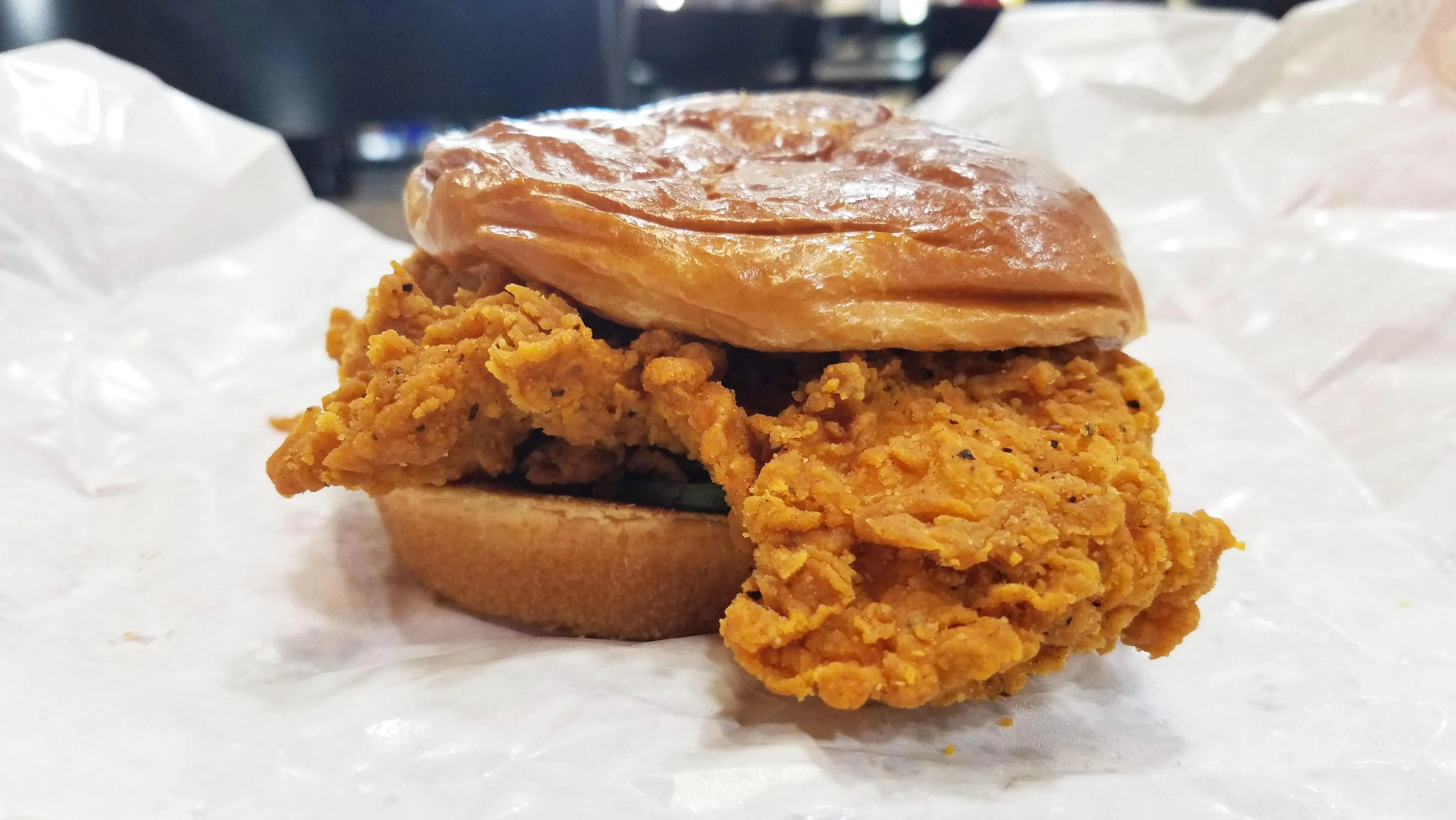Big Birds Aren't Meant For Fast Food
When it comes to poultry, bigger isn’t always better.
Which fast food chain serves the juiciest, most delicious chicken sandwich on the market? That is the matter of some debate, but regardless of which restaurant's version you prefer, many in the industry agree that the key to a successful sandwich is the size of the chicken itself. As it turns out, finding the perfect bird is costing restaurants a wing and a leg, the Wall Street Journal reports.
Popeyes, the chain that fired the first shot of the Chicken Sandwich Wars in 2019, makes use of a rather massive chicken breast for its famous sandwich. KFC, a direct competitor, also offers a large filet for its sandwich. And yet, as WSJ reports, many restaurants are in the market for smaller birds, not larger ones—and they've having trouble finding anything but the bulked-up chickens the U.S. is best known for producing.
Fast food’s chicken problem, explained
Given the high level of demand for small birds, the solution to the problem might seem pretty simple. Poultry producers should just breed and dole out smaller chickens, right? Instead of bulking up their birds, couldn't they save on feed by raising the daintier chickens the industry really wants? Unfortunately, it's not that simple.
Larger birds are more profitable for chicken suppliers than small birds. To produce smaller chickens regularly, many chicken suppliers would also have to make costly adjustments to their current processes, which is not something they are eager to do. The cost for small-format boneless breasts peaked at about $4.30 during the summer of 2022 before falling to about $2.50, according to research firm Urner Barry.
Why chicken size matters in fast food
The fast food industry prefers a tiny-breasted chicken from both a price and quality standpoint. Smaller chicken breasts result in a more tender and flavorful sandwich than larger chickens, whose faster-growing muscle tissue can result in an unappetizing condition known as woody breast.
"The industry has gone to a larger bird because if you're a chicken producer it's more efficient to grow a bigger bird," David Farmer, Chick-fil-A's vice president of restaurant experience, said in 2018. "But we don't like bigger birds. We like the texture that comes from the smaller bird. We want the tenderness of that meat."
It's a matter of function, too. Although a big hunk of chicken between two buns might look the most appealing, a smaller cut just makes sense for a handheld item; it's hard to get a good bite of anything that's too tall and unwieldy. (Can someone tell KFC?) Larger breasts take time and labor to trim, and then there's the issue of what to do with the leftover bits.
This isn't a new problem, either. The Wall Street Journal wrote about the persistent lack of small chickens back in 2019, when Popeyes quickly ran out of reasonably sized filets for its virally popular sandwich. In early 2020, the Los Angeles Times wrote about how fast food chains were seeking suppliers of birds under 4.25 pounds.
The Global Animal Partnership, an animal welfare organization, conducted a study in recent years that also supports the idea of shifting to smaller chickens. The organization studied broiler chickens raised specifically for their meat and found that birds with a faster growth rate and higher breast yield also suffered lower activity levels, poorer indicators of mobility, and overall poor welfare compared to smaller, slow-growth chickens. Generally, healthier animals taste better than those raised in inhumane conditions. So if the suppliers can reach some sort of equilibrium with the fast food industry, maybe the McCrispy of the future will taste way better than it does in 2023.
